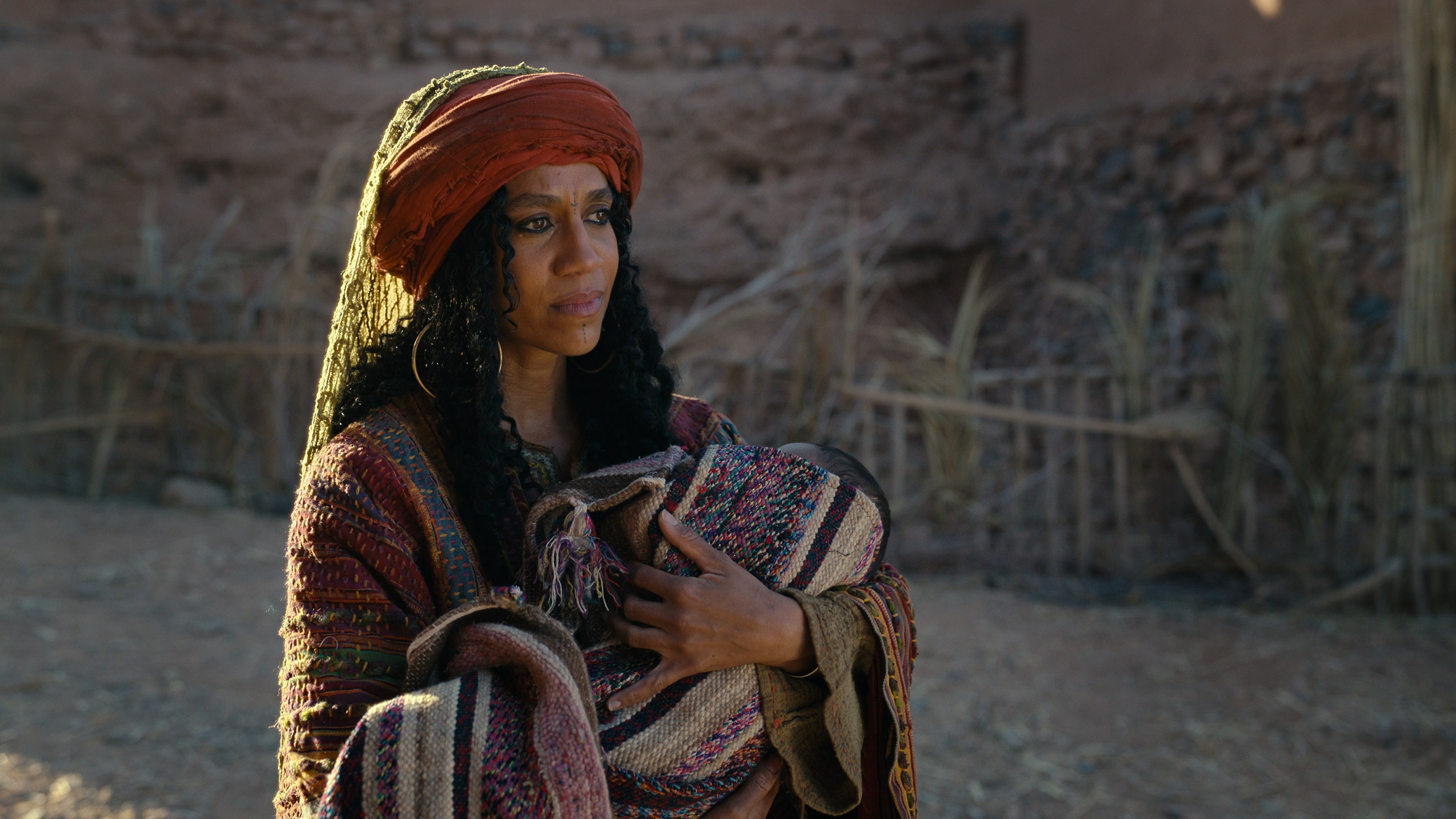If there’s one thing absolutely nobody can deny, it’s that Moses was one of the most important prophets in not only Judaism but also Christianity, Islam, Rastafari, and Samaritanism faiths. That’s because, as explored in ‘Testament: The Story of Moses,’ he was chosen by God to follow a path that’d create codes of morality, establish freedom, plus generate wisdom for society. It thus comes as no surprise he faced several personal challenges along the way, too, yet it all seemingly ultimately brought him a sense of true peace alongside the loving family he’d built.
Moses’ Possibly Married Twice
According to records, it was back when Jewish-born but royal-raised Moses was on the lam upon killing an Egyptian taskmaster who’d been beating a Hebrew that he came across Zipporah. She was the daughter of a desert county named Midian’s priest-prince Jethro/Reuel, yet he had no idea about it at the time they first came face to face and he showed her unwavering chivalry. She was actually watering their sheep alongside her sisters near their barren lands when he apparently asked them for something to drink in exchange for work despite being drained from travel.

Zipporah allowed Moses to quench his thirst for free, per the docudrama, but he immediately repaid her by scaring off some bullying shepherds who’d made their way over for some fun. Then came the fact he walked in front of all sisters after they asked him to accompany them home as a form of gratitude so as to not even look at their legs while the wind blew their skirts. This led them to be utterly impressed, ultimately resulting in the match between Zipporah and Moses even though they didn’t share a belief system or God/Gods — they just knew their hearts.
Their happy union soon brought on the birth of their firstborn son, Gershom, which literally translates to “a stranger there” in Hebrew and hence could be a reference to Moses’ outcastness. He was followed by another boy a few years later in Midian itself, according to the ‘Book of Exodus,’ whom they proudly named Eliezer (Élīʿezer) since it means “Help of my God” in Hebrew. 18:4 reads: “The name of the son was Eliezer, because ‘My father’s God (Elohei Avi) was my helper (Bi’ezeri), rescuing me from Pharaoh’s sword” — a kind of death Moses had faced twice.

However, it’s imperative to note that the passage concerning God’s ensuing desire to smite Moses after having already appeared to him in the form of a burning bush had to do with Gershom. Per this text, Zipporah and her husband were resting while on their way to fulfill his mission to free the Israelites from Egyptian enslavement when she felt as if a higher power was on their tail. Her ensuing quick actions were thus the ones to save Moses from unimaginable fate, yet it remains unclear precisely whose feet it actually refers to when it later states, “foreskin at his feet.”
The whole thing states: “It came to pass, on the way to the lodging place, that the Lord met him [Moses] and sought to kill him. Then Zipporah took a flint and cut off the foreskin of her son [Gershom] and cast it at his feet, and she said: ‘Surely a bridegroom of blood art thou to me.’ So he let him alone. Then she said: ‘A bridegroom of blood in regard of the circumcision.'” Nevertheless, despite her applaudable bravery, it seems as if her husband sent both her and their two children back to Midian because she does not appear again until after the core mission is complete.

Nevertheless, things soon changed as Moses possibly took another wife — a “Cushite” or proud Ethiopian woman whose name has never once been mentioned in any known religious scripture. The sole account of her is in Numbers 12:1, which expresses, “Miriam and Aaron spoke against Moses because of the Cushite woman he had taken [as his wife]: ‘He took a Cushite woman!'” Some suggest this could mean Zipporah herself, but there’s no real link between Midianites and Ethiopians, plus why would Moses’ siblings now object to a marriage that’d taken place 40 years prior by this point?
Little is Known About Gershom and Eliezer
Although it’s confirmed Gershom and Eliezer were Moses’ only two kids, what happened to them has always been a bit unclear owing to the simple fact they weren’t game changers, leaders, or rulers. Yet we do know they were fortunate enough to make it into the Promised Land when the time came (unlike their father, who died within sight of it at 120), and their line was still alive at the time of David. However, neither of them ever headed Israel in any manner despite their father’s once request to God; instead, per ‘The Book of Chronicles,’ they led relatively normal lives, had families of their own, and continued on until it was time for them to pass on too. As for their brood, according to Chronicles 23:16 plus 23:17, while Gershom had a son named Shebuel, Eliezer’s son was called Rehabiah.
Read More: Did Moses Only Marry Zipporah? Why Did They Separate?


You must be logged in to post a comment.